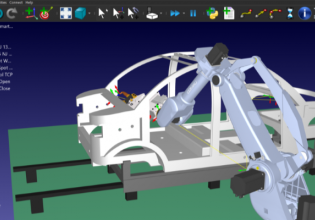G
Good morning,
I'm currently working on a mobile equipment project where we are trying to bring equipment health status to a central location. Our work environment are mostly open quarry.
Most of the suppliers are proposing us communication over IEEE802.11x technology but we also have another one proposing TDMA UHF 400MHz communication. Internally, we are a somewhat divided on which technology will be the best one to use. From the information I gathered, I came to this conclusion:
IEEE802.11x:
More recent and still a current technology
More support from many vendor (not tie to one specific vendor)
No specific licence to get
Need more access points to cover a large outside area
More prone to interferences
Security can be more at risk as there is more users on that technology
Large bandwidth but poor distance covered (??)
TDMA UHF:
Outdated technology (what's the future?)
Need only one antenna to cover a very large distance
Main antenna and receptors cost more money than 802.11x technology
More resistant to interference
More suited for industrial application, especially moving equipment (??)
That's all the information that I got but I'm not sure of the validity of all of them. I would really appreciate to get your input on that subject matter. Any experience or opinion will be appreciated.
Best regards,
Guy Rousseau
I'm currently working on a mobile equipment project where we are trying to bring equipment health status to a central location. Our work environment are mostly open quarry.
Most of the suppliers are proposing us communication over IEEE802.11x technology but we also have another one proposing TDMA UHF 400MHz communication. Internally, we are a somewhat divided on which technology will be the best one to use. From the information I gathered, I came to this conclusion:
IEEE802.11x:
More recent and still a current technology
More support from many vendor (not tie to one specific vendor)
No specific licence to get
Need more access points to cover a large outside area
More prone to interferences
Security can be more at risk as there is more users on that technology
Large bandwidth but poor distance covered (??)
TDMA UHF:
Outdated technology (what's the future?)
Need only one antenna to cover a very large distance
Main antenna and receptors cost more money than 802.11x technology
More resistant to interference
More suited for industrial application, especially moving equipment (??)
That's all the information that I got but I'm not sure of the validity of all of them. I would really appreciate to get your input on that subject matter. Any experience or opinion will be appreciated.
Best regards,
Guy Rousseau






